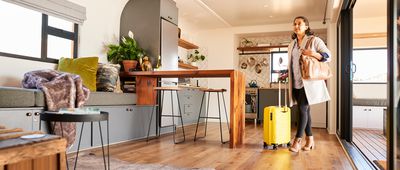Have an Exit Plan
Moving can be one of the most stressful life events. Even if it's a happy occasion, like heading to an exciting new city, upending your life to get everything you own from one place to another is some people's nightmare. It doesn't have to be. With a little organization, a bit of time management, and the right materials, moving might not be a dream, but it can be a smooth process. (Do you have your own favorite tips? Please share them in the comments.)































